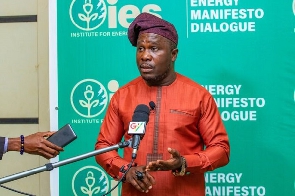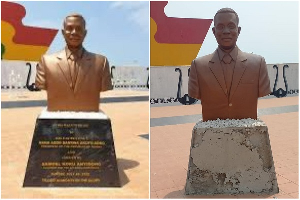The Executive Director of the Institute of Energy Security (IES), Nana Amoasi VII, has slammed the Public Utilities and Regulatory Commission for its inability to give reasons for the various variables that have led to the new increment in tariffs.
According to him, unlike the second adjustment which was attributed to the increase in gas prices, the current adjustment has not had those explanations.
Quoted by 3news.com, he said: "We are in the third quarter of the year and the PURC comes again and says that the weighted average cost of gas has gone up to some 8.1 Dollars per million British Thermal Units, but they failed to give the reasons for which this has gone up compared to the second quarter that really attributed the cost to the end gas price going up. In this one, they failed, and so we are looking for consistency in the application of the variables”.
Nana Amoasi added that PURC cannot pick and choose when it desires to apply the variables for tariff adjustments.
He, however, emphasized that there were no problems as far as the methodology for the adjustments was concerned.
“There is absolutely nothing wrong with the methodology used by the PURC in computing the average end-user tariffs for electricity. However, we are concerned about the application. They choose and pick when to apply each of the variables.
“For the variables used in the methodology, we have the Cedi-Dollar exchange rate as one, inflation as another variable, the electricity generation mix, basically thermal and hydro generation contribution as another, and the average cost of gas as a net variable.
“These are very key components that must be factored in computing electricity tariffs, there is nothing wrong with it. But when you choose and pick when to apply the changes in these variables it is a cause for concern,” he said.
PURC announced an upward review of electricity and water tariffs to take effect on September 1, 2023.
It approved a 4.22 percent increase for electricity across the board for non-lifeline residential customers.
As part of the adjustment, there will not be any increment for lifeline customers, industrial customers, and non-residential customers like hairdressing saloons, barbering shops, chop bars, tailoring and dress-making shops, cold stores, and other small- and medium-scale businesses.
For water, a 1.18 percent increment was approved for all customers except lifeline customers, who will see no increment in tariffs.
PURC noted that the decision was fueled “by the ultimate interest of consumers, the financial viability of the utilities, and the general economic conditions prevailing in the country.”
SSD/NOQ
Ghana’s leading digital news platform, GhanaWeb, in conjunction with the Korle-Bu Teaching Hospital, is embarking on an aggressive campaign which is geared towards ensuring that parliament passes comprehensive legislation to guide organ harvesting, organ donation, and organ transplantation in the country.
Watch the latest edition of BizTech and Biz Headlines below:
Business News of Thursday, 24 August 2023
Source: www.ghanaweb.com

















